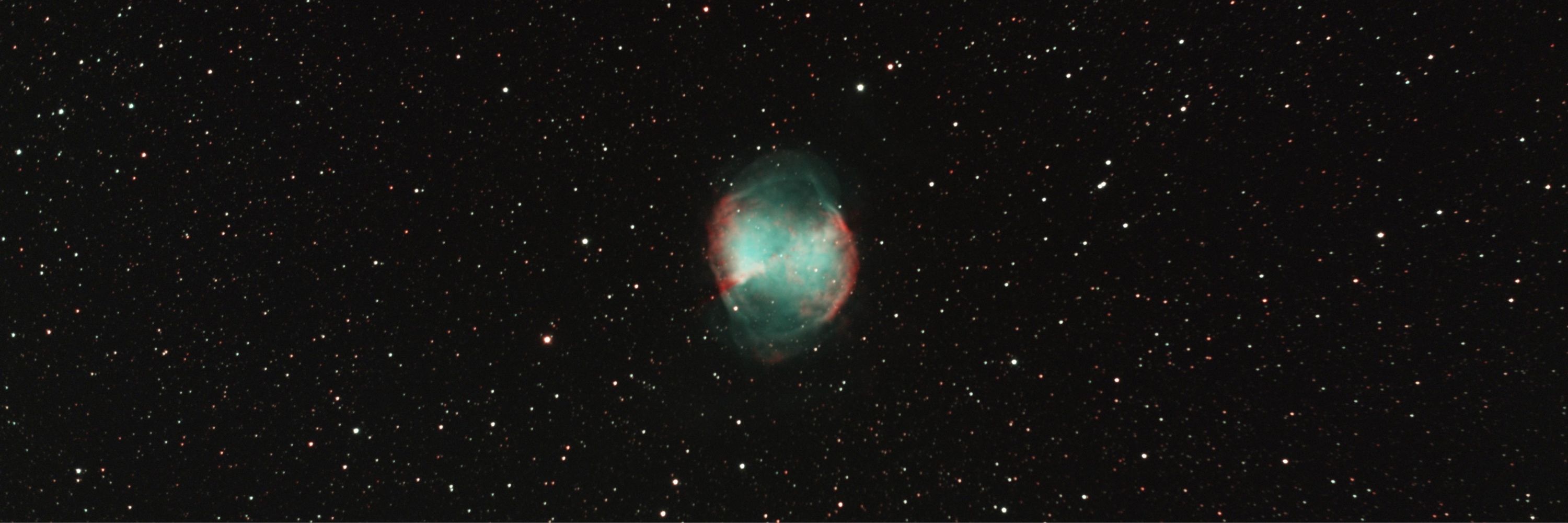
Joel Waldfogel
@jwaldfog.bsky.social
It's a nice coming-out party for the paper. www.journals.uchicago.edu/doi/abs/10.1...
The Welfare Effects of Gender-Inclusive Intellectual Property Creation: Evidence from Books | Journal of Political Economy
Women have traditionally participated in intellectual property creation at depressed rates relative to men. Book authorship is now an exception: women now publish more than half of new books. Adding n...
www.journals.uchicago.edu
May 30, 2025 at 10:40 AM
It's a nice coming-out party for the paper. www.journals.uchicago.edu/doi/abs/10.1...
Our bottom line: there is a lot of regret and missed opportunity in current differentiated product consumption (and not just with gifts).
January 27, 2025 at 10:29 PM
Our bottom line: there is a lot of regret and missed opportunity in current differentiated product consumption (and not just with gifts).
...and the relationship between individuals’ tendency to own games and the games’ average playtimes supports this assumption. We do a bunch of other stuff to explore robustness.
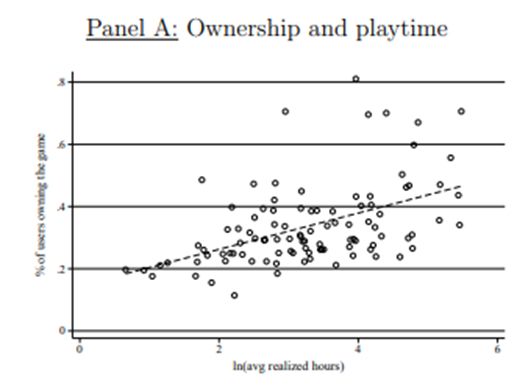
January 27, 2025 at 10:29 PM
...and the relationship between individuals’ tendency to own games and the games’ average playtimes supports this assumption. We do a bunch of other stuff to explore robustness.
Nerdy caveats: Our users choose among 100 games; we make the bundle choice problem tractable by specifying utility as a function of hours of playtime and money spent. This presumes that marginal utilities of different games are proportional to the playtime they deliver.
January 27, 2025 at 10:29 PM
Nerdy caveats: Our users choose among 100 games; we make the bundle choice problem tractable by specifying utility as a function of hours of playtime and money spent. This presumes that marginal utilities of different games are proportional to the playtime they deliver.
Second, using a model of game bundle choice, we measure the welfare gain from full information as the loss of money to bring consumers from full information down to their status quo choices. Full information would raise CS by 30 percent more than baseline expenditure.
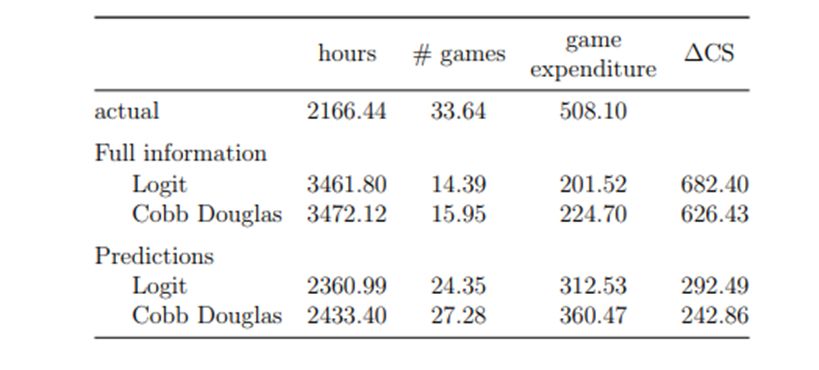
January 27, 2025 at 10:29 PM
Second, using a model of game bundle choice, we measure the welfare gain from full information as the loss of money to bring consumers from full information down to their status quo choices. Full information would raise CS by 30 percent more than baseline expenditure.
We develop a two-part model for measuring the welfare gain with full information. First, full information would raise the size of the budget set by allowing consumers to buy the games yielding the most playtime first.
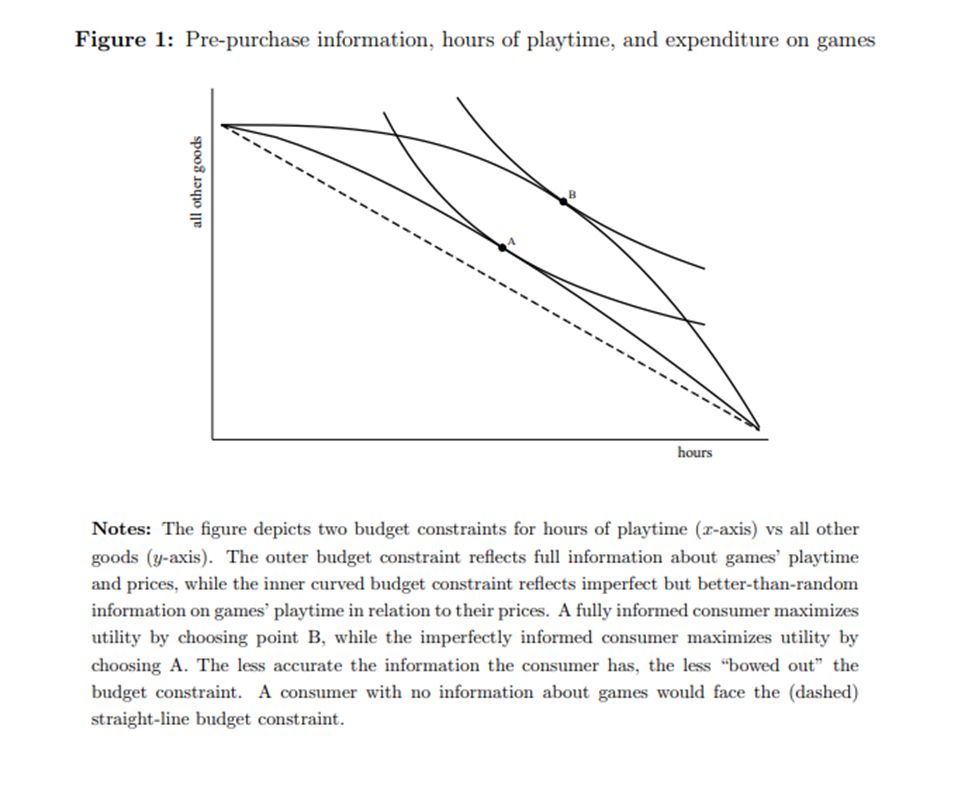
January 27, 2025 at 10:29 PM
We develop a two-part model for measuring the welfare gain with full information. First, full information would raise the size of the budget set by allowing consumers to buy the games yielding the most playtime first.
We have unusual data on post-purchase usage providing big hints about regret: Users could have achieved 90 percent of their status quo playtime with 60 percent less expenditure.
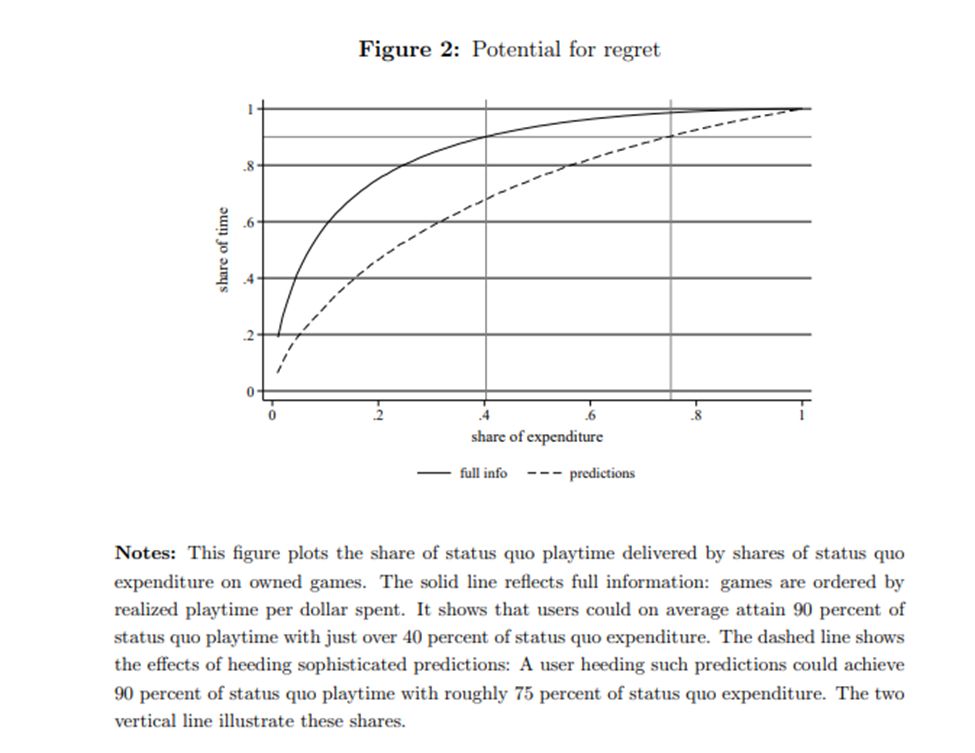
January 27, 2025 at 10:29 PM
We have unusual data on post-purchase usage providing big hints about regret: Users could have achieved 90 percent of their status quo playtime with 60 percent less expenditure.
We don’t know much about this, for two reasons. 1) we rarely see post-purchase usage, 2) welfare analysis proceeds from assumptions of revealed preference. If you paid 10 dollars for something, it must have been worth at least 10 dollars to you.
January 27, 2025 at 10:29 PM
We don’t know much about this, for two reasons. 1) we rarely see post-purchase usage, 2) welfare analysis proceeds from assumptions of revealed preference. If you paid 10 dollars for something, it must have been worth at least 10 dollars to you.

